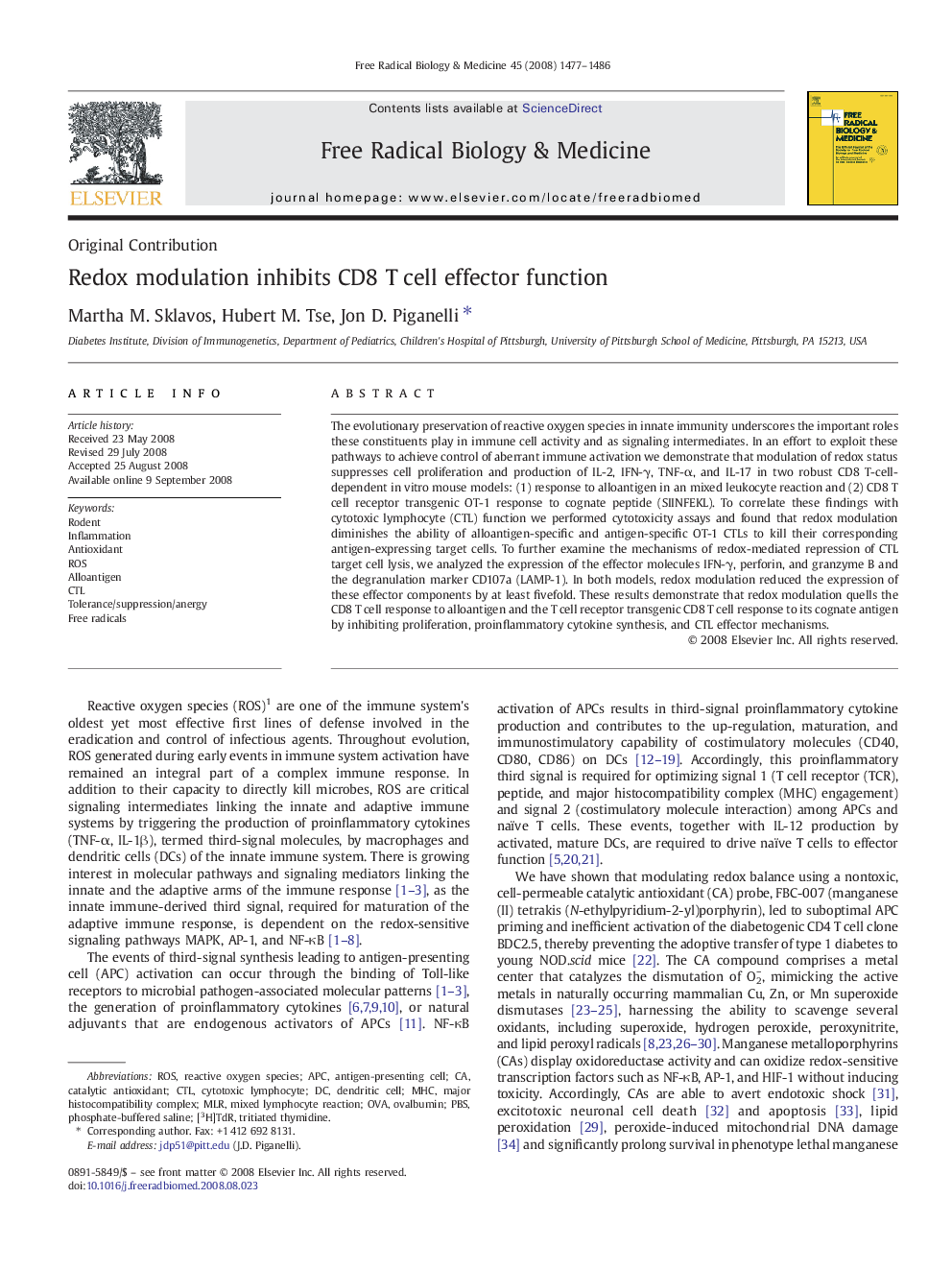| Article ID | Journal | Published Year | Pages | File Type |
|---|---|---|---|---|
| 1910495 | Free Radical Biology and Medicine | 2008 | 10 Pages |
The evolutionary preservation of reactive oxygen species in innate immunity underscores the important roles these constituents play in immune cell activity and as signaling intermediates. In an effort to exploit these pathways to achieve control of aberrant immune activation we demonstrate that modulation of redox status suppresses cell proliferation and production of IL-2, IFN-γ, TNF-α, and IL-17 in two robust CD8 T-cell-dependent in vitro mouse models: (1) response to alloantigen in an mixed leukocyte reaction and (2) CD8 T cell receptor transgenic OT-1 response to cognate peptide (SIINFEKL). To correlate these findings with cytotoxic lymphocyte (CTL) function we performed cytotoxicity assays and found that redox modulation diminishes the ability of alloantigen-specific and antigen-specific OT-1 CTLs to kill their corresponding antigen-expressing target cells. To further examine the mechanisms of redox-mediated repression of CTL target cell lysis, we analyzed the expression of the effector molecules IFN-γ, perforin, and granzyme B and the degranulation marker CD107a (LAMP-1). In both models, redox modulation reduced the expression of these effector components by at least fivefold. These results demonstrate that redox modulation quells the CD8 T cell response to alloantigen and the T cell receptor transgenic CD8 T cell response to its cognate antigen by inhibiting proliferation, proinflammatory cytokine synthesis, and CTL effector mechanisms.
